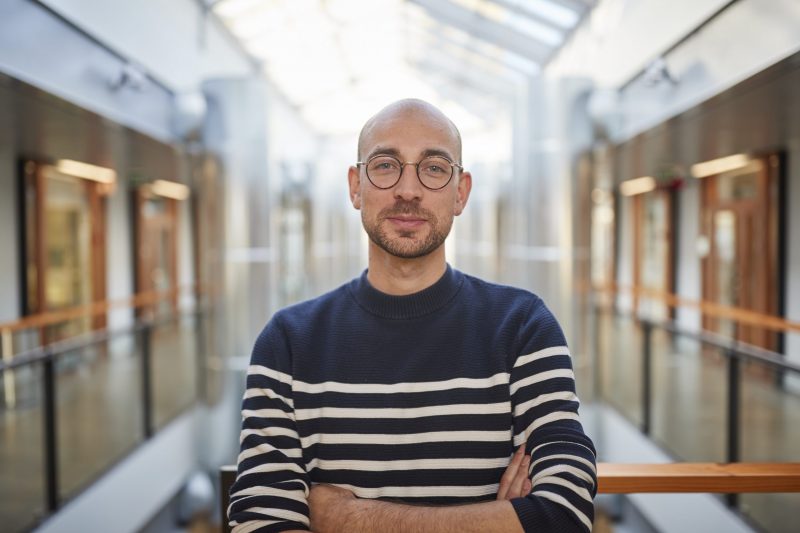
STAGE ISSS: Andrea Ganna
Join us for the next instalment of the STAGE International Speaker Seminar Series (ISSS) with
Andrea Ganna, PhD
FIMM-EMBL group leader at the Institute of Molecular Medicine Finland, HiLIFE, University of Helsinki. Research associate at Massachusetts General Hospital, Harvard Medical School.
Free Hybrid (In person/Online) Event | Registration Required
Talk Title:
Translating results from large-scale genetic association studies into public health-relevant measures
Abstract:
I will describe different efforts that our team is pursuing to translate results from genome-wide association studies into clinically and public-health-relevant applications. The talk will touch upon the use of polygenic scores for disease prediction and their value in informing patients’ disease prognosis. I will discuss our recent work in mapping the impact of genetic risk factors on healthy life years (Jukarainen et al, Nature Medicine, 2022) and the use of genetics to understand the causal impact of modifiable risk factors on healthcare costs. Finally, I will show how nationwide registry data, together with genetic information, can enhance high-throughput epidemiological analyses to answer public health-relevant questions, such as COVID-19 vaccination uptake.
Speaker Profile:
Andrea is an EMBL-group leader at FIMM and Research Associate at Harvard Medical School and Massachusetts General Hospital. Previously he did his post-doc at the Analytical and Translation Genetic Unit at Massachusetts General Hospital/Harvard Medical School/Broad Institute and his PhD at Karolinska Institute. His research interests lie on the intersection between epidemiology, genetics and statistics. Andrea have authored and co-authored both methodological and applied papers focused on leveraging large scale epidemiological datasets to identify novel socio-demographic, metabolic and genetic markers of common complex diseases. He has extensive expertise in statistical genetics and have been working with large-scale exome and genome sequencing data, focusing on ultra-rare variants in coding and non-coding regions. His research vision is to integrate genetic data and information from electronic health record/national health registries to enhance early detection of common diseases and public health interventions.
Sponsors
CANSSI Ontario STAGE (STAGE) is a training program in genetic epidemiology and statistical genetics, housed at the University of Toronto Dalla Lana School of Public Health, and funded by CANSSI Ontario at U of T, an extra-departmental unit in the Faculty of Arts & Science that is home to the Ontario Regional Centre of the Canadian Statistical Sciences Institute (CANSSI).
Seminars are sponsored by The Hospital for Sick Children (Genetics & Genome Biology Program), the Lunenfeld-Tanenbaum Research Institute, the Department of Statistical Sciences of the University of Toronto, and the McLaughlin Centre.
Photography Disclosure:
Photographs and/or video may be taken of participants at STAGE events. These photos/videos are for the Program’s use only and may appear on its website, in printed brochures, or in other promotional or reporting materials. By attending STAGE events, you accept the possibility that you may be videotaped or photographed. If you have any concerns, please inform us by sending an e-mail to esther.berzunza@utoronto.ca
Hourly Schedule
December 2, 2022
- 12:00 pm - 1:00 pm
- Translating results from large-scale genetic association studies into public health-relevant measures
- Abstract:
I will describe different efforts that our team is pursuing to translate results from genome-wide association studies into clinically and public-health-relevant applications. The talk will touch upon the use of polygenic scores for disease prediction and their value in informing patients’ disease prognosis. I will discuss our recent work in mapping the impact of genetic risk factors on healthy life years (Jukarainen et al, Nature Medicine, 2022) and the use of genetics to understand the causal impact of modifiable risk factors on healthcare costs. Finally, I will show how nationwide registry data, together with genetic information, can enhance high-throughput epidemiological analyses to answer public health-relevant questions, such as COVID-19 vaccination uptake.
Speaker Profile:
Andrea is an EMBL-group leader at FIMM and Research Associate at Harvard Medical School and Massachusetts General Hospital. Previously he did his post-doc at the Analytical and Translation Genetic Unit at Massachusetts General Hospital/Harvard Medical School/Broad Institute and his PhD at Karolinska Institute. His research interests lie on the intersection between epidemiology, genetics and statistics. Andrea have authored and co-authored both methodological and applied papers focused on leveraging large scale epidemiological datasets to identify novel socio-demographic, metabolic and genetic markers of common complex diseases. He has extensive expertise in statistical genetics and have been working with large-scale exome and genome sequencing data, focusing on ultra-rare variants in coding and non-coding regions. His research vision is to integrate genetic data and information from electronic health record/national health registries to enhance early detection of common diseases and public health interventions. -
Speakers:
Andrea Ganna
- 1:00 pm - 2:00 pm
- Networking and Mixer
The event is finished.
Local Time
- Timezone: America/New_York
- Date: Dec 02 2022
- Time: 12:00 pm - 1:00 pm

Location
Speaker
Moderator

Rayjean Hung
Website
https://www.lunenfeld.ca/?page=hung-rayjeanAssociate Director of Population Health, Head of the Prosserman Centre for Population Health Research, Senior Investigator, Lunenfeld-Tanenbaum Research Institute, Sinai Health and Professor, Epidemiology Division, Dalla Lana School of Public Health, University of Toronto


